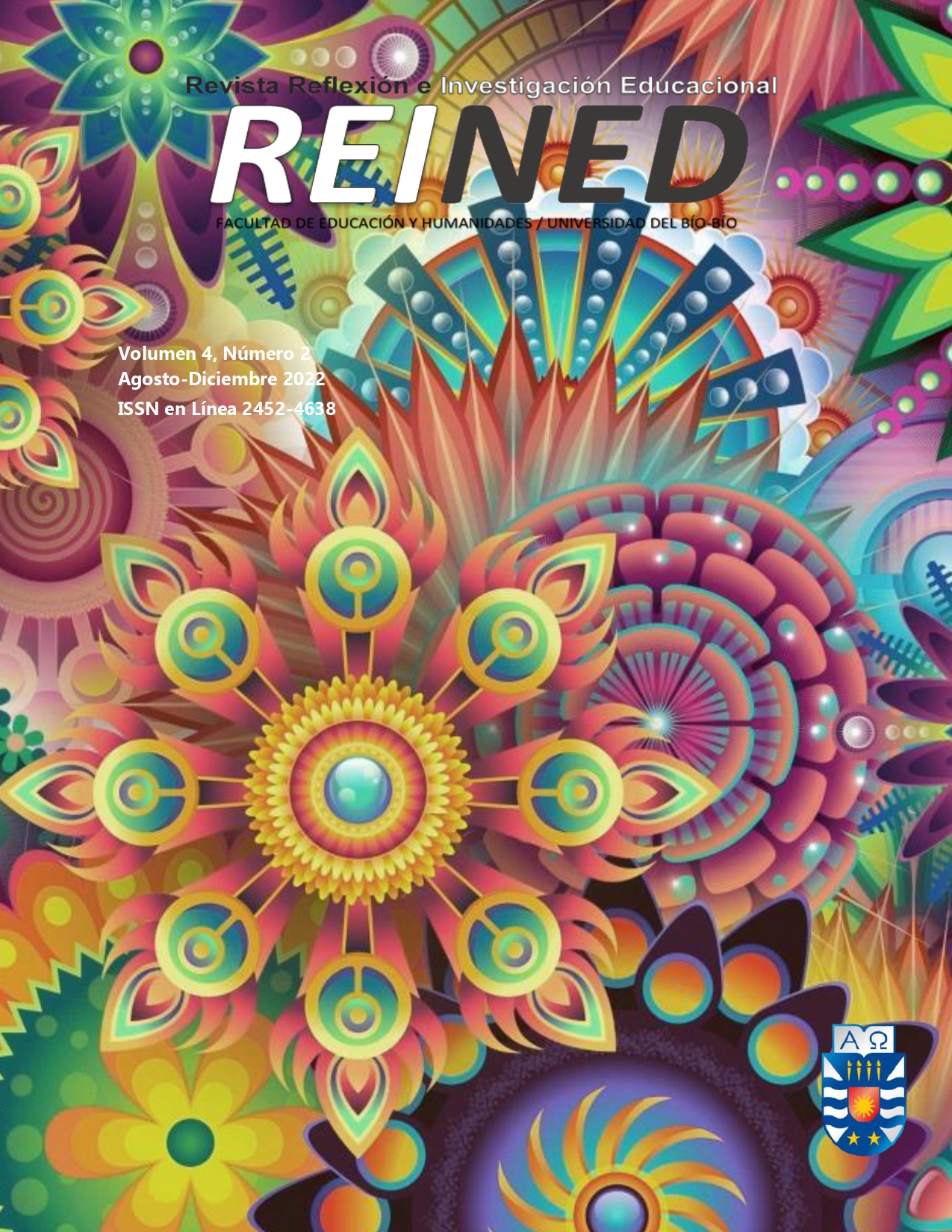Beliefs about creativity in Physical Education teachers in Training
Main Article Content
Abstract
Creativity is a human capacity that has become very relevant as a 21st-century skill. The objective of this work was to explore the beliefs of Physical Education teachers in training about creativity and the goals of human development that they prioritize within their teaching work. A qualitative approach with a descriptive scope and a phenomenographic design was used in a sample of 47 future Physical Education teachers from two Chilean universities, in their last years of training. The data was collected through an individual written survey or "ideographic matrix" to be later analyzed in two phases: the first phase of content analysis and then a phase of organization of beliefs in means or ends through a laddering technique. The main results indicate that beliefs are organized from the most concrete (means) to the most abstract (ends), with the ultimate goal being the use of creativity for the physical/organic improvement of the student body and as the second most relevant purpose, to achieve greater motivation and participation of the student body. It is concluded that what future Physical Education teachers think about creativity and its use in classes, is oriented towards instrumental use, leaving out many of the benefits for the comprehensive development of students, showing the pending task for teacher training. and the incorporation of creativity into the work of educating in the 21st century.
Article Details
References
Bamford, A. (2006). The Wow Factor: Global reserch copendium on the impact of arts in education. Berlin: Waxmann Verlag.
Benito, P., & Palacios, A. (2018). Estudio sobre las concepciones de un grupo de docentes de Educación Primaria sobre la creatividad. Educación Artística: revista de investigación, 23-44. DOI: https://doi.org/10.7203/eari.9.12224
Betti, M., & Zuliani, L. (2002). Educação Física Escolar: Uma Proposta de Diretrizes Pedagógicas. Revista Mackenzie de Educação Física e Esporte, 73-81.
Capozza, D., Falbo, R., Robusto, E., & Orlando, A. (2003). Beliefs about Internet: Methods of Elicitation and Measurement. Papers on Social Representations, 1.1-1.14.
Caterrall, J., Dumais, S., & Hampden-Thompson, G. (2012). The arts and achievement in at-risk youth: findings grom four longitudinal studies. National Endowment for the Arts, 1-28.
Daolio, J. (2018). Educação Física e o Conceito de Cultura: Polêmicas do Nosso Tempo. São Paulo: Editora Autores Asociados.
de la Torre, S., & Mancilla, J. L. (2018). Autopercepción del Profesorado y Equipo Directivo en el Desarrollo de la Creatividad. Un estudio de caso valorado con VADECRIE. Revista Internacional de Educación para la Justicia Social, 13-32. DOI: https://doi.org/10.15366/riejs2018.7.2.001
Díaz Herrera, C. (2018). Investigación cualitativa y análisis de contenido temático. Orientación intelectual de revista Universum. Revista General de Información y Documentación, 119-142. DOI: https://doi.org/10.5209/RGID.60813
Elisondo, M., & Piga, F. (2020). Todos Podemos Ser Creativos: Aportes a la educación. Diálogos sobre educación, 1-22. DOI: https://doi.org/10.32870/dse.v0i20.590
Ferreiro, R. (2012). La Pieza Clave del Rompecabezas del Desarrollo de la Creatividad: La Escuela. Revista Iberoamericana sobre Calidad, Eficacia y Cambios en Educación, 6-22.
Jansen, H. (2012). La lógica de la investigación por encuesta cualitativa y su posición en el campo de los métodos de investigación social. Paradigmas, 39-72.
Lagardera, F. (2007). La Conducta Motriz: un nuevo paradigma para la Educación Física del siglo XXI. Conexões, 1-18. DOI: https://doi.org/10.20396/conex.v5i2.8637875
Linzmayer, L. (2017). Educación Física: Ideas y Reflexiones Disruptivas. Curitiba: Appris Editora.
Maggio, M. (2018). Habilidades del siglo XXI: Cuando el futuro es hoy. Buenos Aires: Santillana.
Meller, P. (2018). Claves para la Educación del Futuro. Santiago de Chile: Catalonia.
MINEDUC. (2014). Estandares Orientadores Para Carreras de Pedagogía en Educación Física. Santiago de Chile: Trama Impresores S.A.
Monge, V. (2015). La codificacion en el método de la ivestigación de la grounded theoty o teoría fundamentada. Innovaciones Educativas, 77-84. DOI: https://doi.org/10.22458/ie.v17i22.1100
Neira, M., & Nunez, M. (2008). Pedagogía da Cultura Corporal: Crítica e Alternativas. São Paulo: Phorte Editora.
Pérez Gallardo, J., & Linzmayer, L. (2019). Educación Física Escolar: Conceptos Fundamentales para la Formación y Actuación Profesional. Chile: Ediciones UBB.
Rodríguez, I., Del Valle, S., & De la Vega, M. (2018). Revisión nacional e internacional de las competencias profesionales de los docentes de Educación Física. Retos, 383-388.
Ruppert, S. (2006). How the arts benefit student achievement. Critical Evidence, 1-24.
Salinas-López, J. C., Espada, M., & García-Coll, V. (2015). Una Propuesta en Educación Física para el Desarrollo de la Creatividad Motriz en Alumnos de Tercero de Primaria. Revista Internacional de Ciencias Sociales de la Actividad Física, el Juego y el Deporte, 47-68.
Serrano, S., Ponce de León, M., & Rengifo, F. (2013). Historia de la Educación en Chile (1810-2010) Tomo II: La Educación Nacional (1880-1930). Santiago de Chile: Taurus.
Solano, N., Sevilla, Y., Pozo, C., & Garrido, D. (2020). Innovación Educativa: Creencias de futuros maestros. Iternational Journal of Developmental and Educational Psychology, 487-495. DOI: https://doi.org/10.17060/ijodaep.2020.n1.v1.1807
Verdú, R., Boj, L., & Villalba, J. (2021). Estudio prospectivo sobre el autoconcepto creativo. Percepción de la formación creativa por estudiantes del Grado de Educación Primaria en etapas educativas previas. ArtsEduca, 23-38. DOI: https://doi.org/10.6035/Artseduca.2021.29.3
Welch, R., Alfrey, L., & Harris, A. (2021). Creativity in Australian health and physical education curriculum and pedagogy. Educación y Sociedad Deportiva, 471-485. DOI: https://doi.org/10.1080/13573322.2020.1763943

